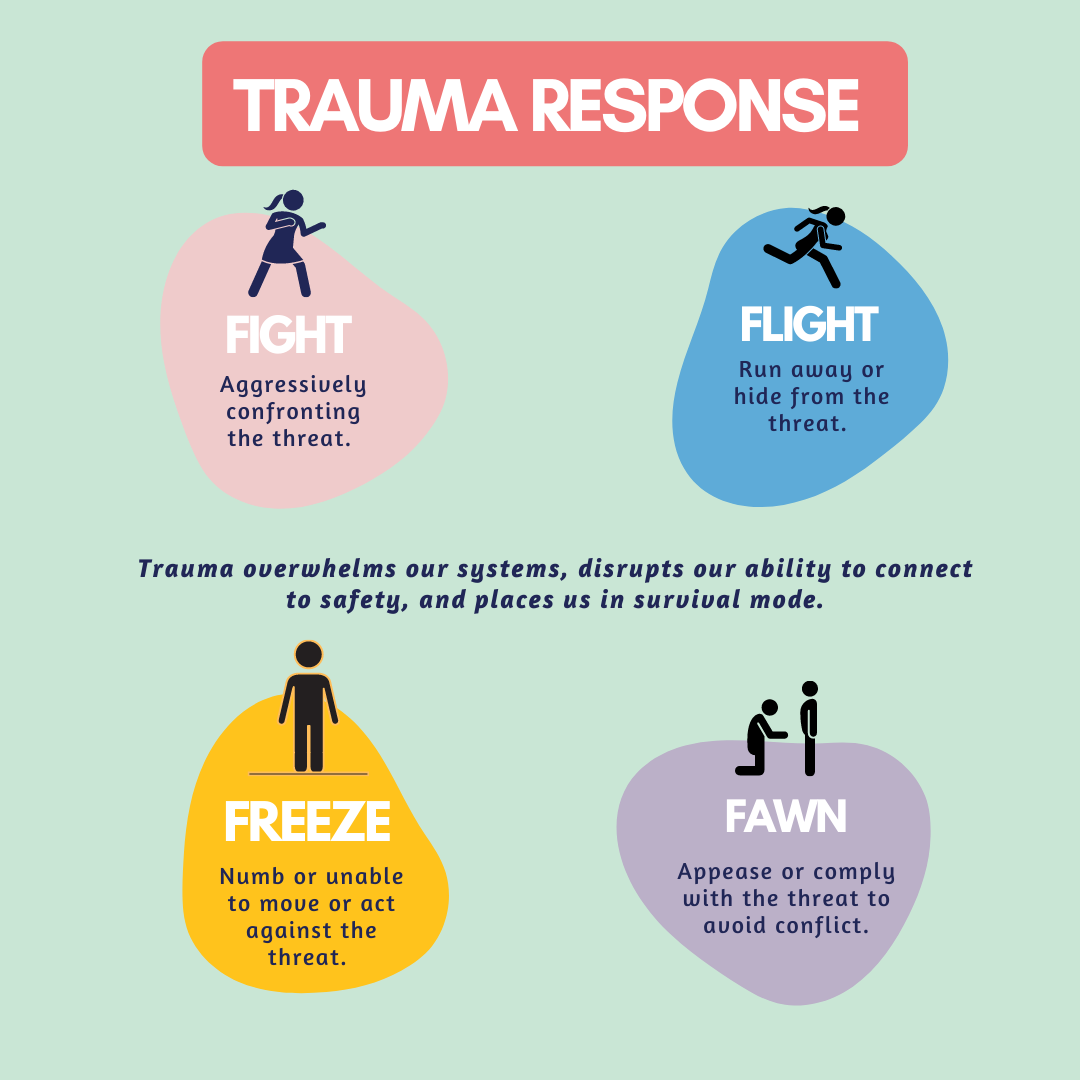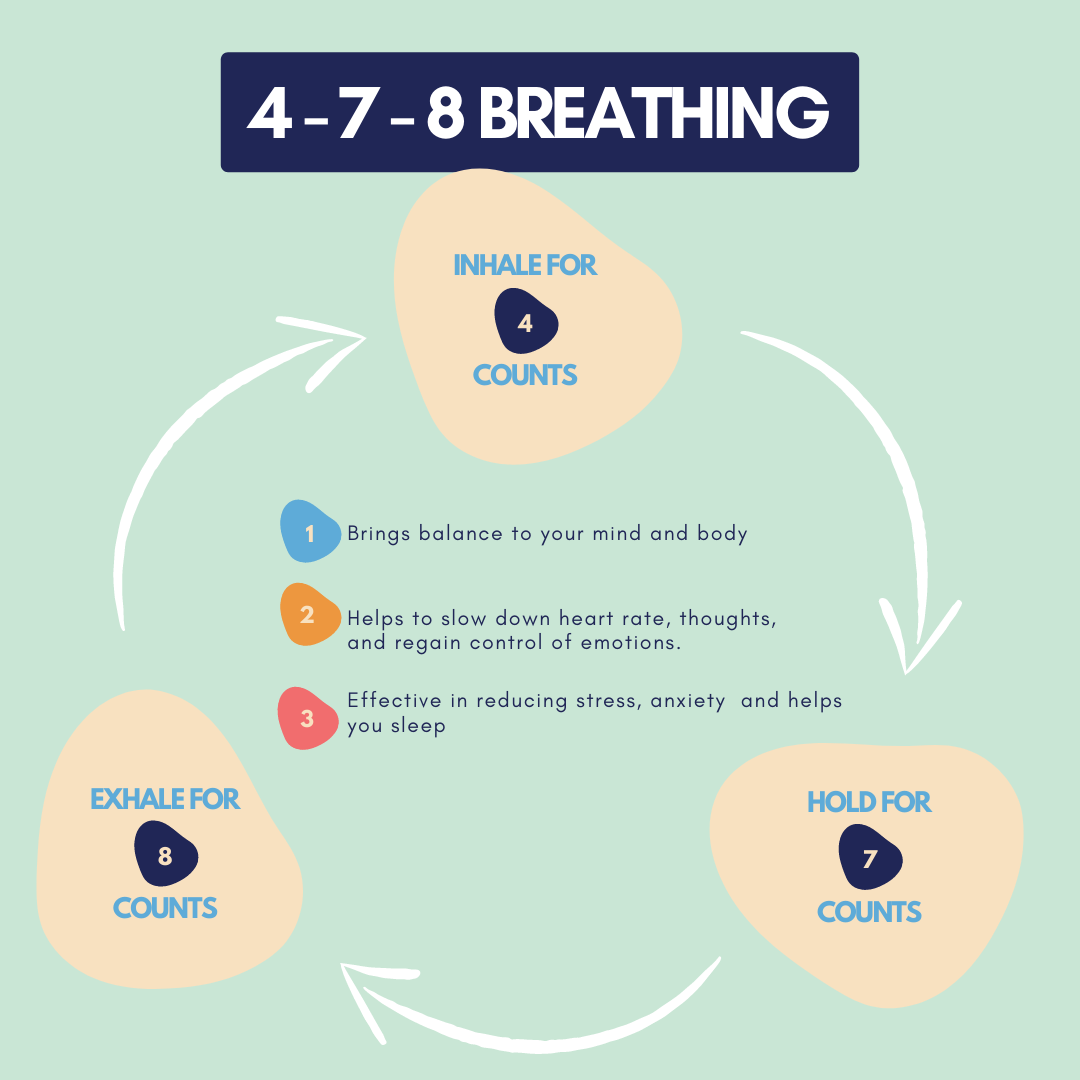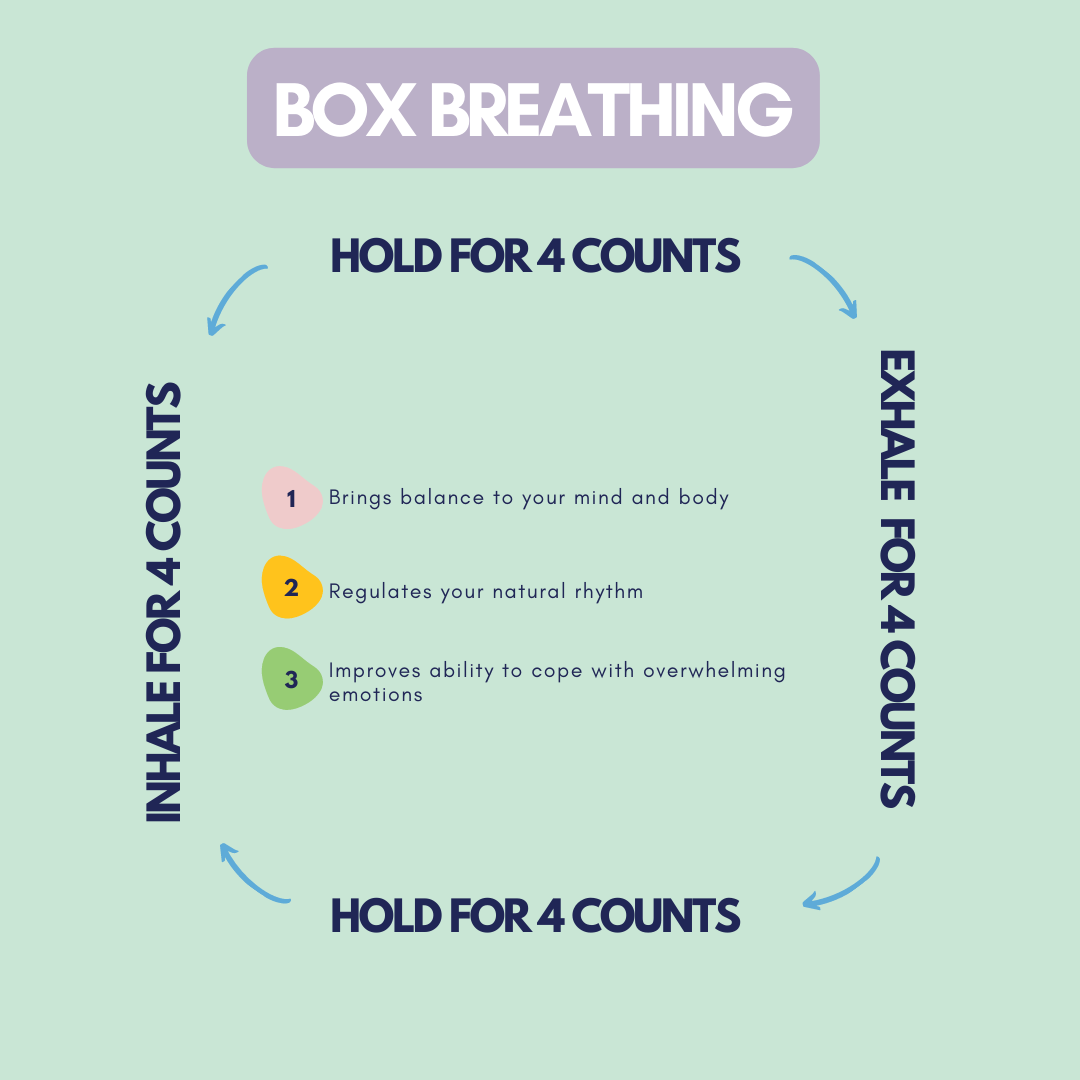The following resources were curated by Dr. Charmain Jackman, a Harvard-trained psychologist with 25+ years in the mental health field. She is the founder of InnoPsych, an organization on a mission to disrupt racial disparities in mental health and provide healing resources for communities of color.
Message from Dr. Jackman
We recognize that the production of Evita has themes that may be triggering to audience members who have experienced sexual assault or who know someone who has. Below you will find information about sexual assault and sexual violence and support resources.
We recognize that our productions may unintentionally activate distressing and/or traumatic memories of past experiences in our audience members. We share the resources below as tools that support you if this comes up for you.
General Coping Strategies
Mindfulness
Mindfulness is a stress reduction practice that helps you to slow down by using your breath, focusing on the present, and engaging in curiosity and kindness. Engaging in a daily mindfulness practice can help you to deal more effectively with triggers and traumatic events, foster relaxation, and decrease anxiety.
Breathing Techniques
Engaging in controlled breathing helps to calm the body and engages the parasympathetic nervous system, which helps with relaxation. When the body starts to relax, you will notice slowed heart rate and blood pressure, constriction of the pupils, and decrease in stress hormones.
Here are a few breathing exercises that you can try:
4-7-8 Breathing (Great for sleep issues):
- Breath in through your nose for a count of 4
- Hold your breath for a count of 7
- Exhale through your month for a count 8
- Repeat at least 5 times.
Box breathing:
- Breath in for a count of 4
- Hold your breath for a count of 4
- Exhale through your mouth for a count of 4
- Hold for a count of 4
- Repeat 5 times or more
Slow breathing:
- Breath in through your nose for a count of 3
- Exhale through an imaginary straw in your mouth for a count of 7
- Repeat 5 times or more
Grounding Techniques
Grounding techniques help you to reconnect to your surroundings when you are feeling triggered and flooded with emotion, overwhelmed with negative thoughts, or experiencing a panic attack.
Tuning In is a grounding technique that engages your five senses to help you connect back to the environment. Simply connect back to your environment by identifying:
- 5 objects you can see
- 4 things you can touch/feel
- 3 things you can hear
- 2 things can smell
- 1 thing you can taste
What do you notice after completing this exercise?
Sexual Assault & Violence
Sexual assault describes any physical, verbal, or psychological sexual act that violates a person’s boundaries when an individual does not or is unable to freely give consent. The Center for Disease Control and Prevention (CDC) adds that “sexual violence can occur in person, online, or through technology, such as posting or sharing sexual pictures of someone without their consent, or non-consensual sexting.” Sexual assault also includes unwanted sexualized verbal attacks.
The CDC Fast Facts estimates that 1 in 4 girls and 1 in 13 boys experience sexual assaults during childhood. However, these figures are likely underrepresented as many children do not disclose their abuse at the time the assault occurs. Additionally, over 50% of women and 33% of men have experienced sexual violence involving physical contact during their lifetime.
What Is Consent?
Consent refers to the ability to willingly and freely agree to engage in any kind of sexual activity including touching, kissing, and sexual intercourse. People who are minors (defined as under 18 years old in the US), have severe intellectual disabilities, and are asleep, unconscious, or intoxicated by alcohol or drugs are not able to freely give consent.
Consent has gained more attention in recent years and is part of many health education curricula for children and adolescents.
Psychological Impact of Sexual Violence
When someone experiences sexual violence, it can trigger the flight, fight, freeze, fawn response. This is the body’s automatic response to a threat which activates the sympathetic nervous system. For example, people will experience physical responses such as increased heart rate, dilation of the pupils, increased adrenaline production, and increased alertness.

Survivors of sexual trauma or sexual violence can experience a number of symptoms including anxiety, depression, and/or post-traumatic stress disorder. Symptoms may include, but are not limited to:
- Changes in mood
- Sleep disruptions (e.g. insomnia, sleeping too much)
- Disconnection from body and emotions
- Flashbacks
- Avoiding people, places, and other reminders of the assault
- Hyper-vigilance
- Exaggerated startle response
- Sense of loss of control
- Social isolation or withdrawal
- Alcohol and drug use
- Engaging in risky sexual behavior
Survivors may also experience guilt and may believe that they are at fault for the assault. However, it is important that survivors understand that they are not to blame.
Finding Support
Crisis Interventions
If you are a survivor of a sexual assault, you have the option to report the assault to your local police station. It can be a difficult process and having a friend or an advocate go with you to provide support can make the process a little easier.
Below are national crisis hotlines (available 24/7) and Massachusetts-based organizations that support survivors of sexual assault/violence at all phases of the process:
- National Sexual Assault Hotline: 1.800.656.4673
- Boston Area Rape Crisis Center (BARCC): 1.800.841.8371
- Jane Doe, Inc (JDI), The Massachusetts Coalition Against Sexual Assault and Domestic Violence
- SafeLink Statewide Hotline: 1.877.785.2020
- National Suicide & Crisis Hotline: 988
Therapeutic Support
There are a number of therapeutic interventions that can be used to support people who have experienced sexual assaults:
- Traditional talk Therapy
- Eye Movement Desensitization and Reprocessing (EMDR)
- Body-based therapy such as dance/movement therapy, expressive therapy, and trauma-informed yoga can help survivors re-connect to their bodies
Therapy Resources
Books
- Homecoming: Overcome Fear And Trauma To Reclaim Your Whole, Authentic Self by Dr. Thema Bryant-Davis
- My Time To Thrive: Feel. Grow. Heal.™ card deck is stacked with powerful tools, activities, and quotes created to kickstart your personal journey to healing from challenging and traumatic life events


